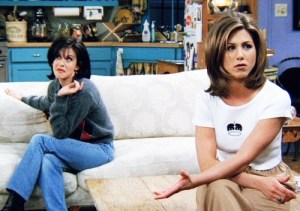I’ve been thinking about how kids books can make a difference for disadvantaged people groups. The poor, the oppressed, the marginalised. Those starving in a third world, or held captive by a regime of fundamentalist beliefs, the homeless, the refugees, those who come here not speaking our language.
But I don’t think the best way to do it is to directly target those issues.
There are many award-winning, real-life dramas for kids that address racism or other forms of prejudice, like the multi-award-winning The Little Refugee, by famous refugee Ahn Do, or The Curious Incident of the Dog in the Night-Time by Mark Haddon, or the more recent The Invisible Hero by Elizabeth Fensham. These are books that many kids read in school; in my day, it was To Kill A Mockingbird for anti-racism, and I Capture the Castle or A Little Princess for accepting poverty.
Wonderful as these books all are at persuading their child audience to be more welcoming and accepting of certain people groups, I think they can never be as successful at persuading their child audience to be more welcoming and accepting generally, as stories told through the from-out-of-left-field genres of fantasy and sci-fi.
An article yesterday on the topic (this one is from Arts Mic; read its other variations in most other major news outlets, e.g. Sydney Morning Herald) discussed a series of three studies of Italian kids who had to read Harry Potter for school. This study showed that kids who identified with Harry Potter had significantly stronger tolerance for minority groups such as refugees, other immigrants, and gay people. The more HP books they had read, the more tolerant they were. And in contrast, kids who identified in any way with Voldemort showed less tolerance for refugees and other minority groups.
It’s simple if you think about it. Harry befriends Hermione, a ‘mudblood’ (a Muggle-born witch); Ron, the son of a very poor family; Hagrid, a half-giant ostracised by non-giants and giants alike; and Neville, who due to no fault of his own shows less aptitude for their magical studies.
J.K. Rowling said in 2003 that she never set out to teach kids anything, but she did say at the conclusion of the series that she considered it “a prolonged plea for an end to bigotry”.

Harry with Hermione, Ron and Neville – from Arts Mic – image source: AP
This revolution in kids, started by a fantasy book series, reminded me of a powerful sci-fi movement that changed how we think about minority groups in the Western World.

Trek Nation – documentary, 2011
I was recently watching a 2011 documentary by Rod Roddenberry, the son of Eugene Roddenberry, creator of Star Trek: Trek Nation. A lot of the documentary focussed on how Star Trek allowed its viewers to feel like it was okay to be different.
No, Star Trek wasn’t written specifically for kids, but a lot of kids watched it. It was clean – very little bad language, violence, or adult themes. And it changed how they grew up.
In one powerful line, Rod said the thing that struck me the most: that Star Trek viewers had been consistently shown to be more tolerant people in general. They were more tolerant and accepting towards other races, other genders or sexualities, and other worldviews, better than the average person.
Part of the reason for this is because the show was, from the beginning, multicultural in its choice of actors. At a time when there were few non-white or foreign roles in American television dramas (the UK did a little better), Roddenberry chose an African woman to play Uhura, a Scotsman for Scotty, a Japanese-American for Hikaru Sulu, and a half-Vulcan alien for Spock.
Do you think books about real-life drama can achieve the same thing in kids through such subtle methods, such subconscious and long-lasting success?
On a faith note, Jesus embraced the outsider everywhere he went, and supported multicultural attitudes and interfaith communication whole-heartedly.
In John 4:7, he talks with the Samaritan woman at the well. In Luke 10 he tells the parable of the good Samaritan, which basically says, “Who is my neighbour?” “Everyone, even my enemies, people whose beliefs are totally the opposite of mine.” And what does he say about enemies? “Love your enemies.”
Then in Luke 9:54, Jesus and the disciples are looking down at a Samaritan village that has rejected the message of Jesus and thrown them out of town. James and John turn to Jesus and say, “Lord, do you want us to call down fire from heaven to destroy them?” But what does Jesus do? It says in verse 55, “But he rebuked them [the disciples].” And this obviously has a huge impact on John, because later, in Acts 8:14, the disciples hear that Samaria has “accepted the word of God”, and as they’re deciding who to send there as missionaries, they choose Peter and John.
Continue reading →






